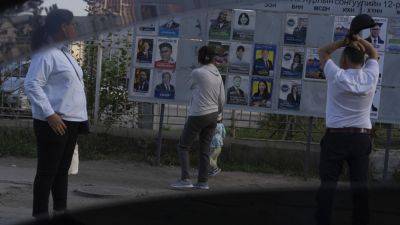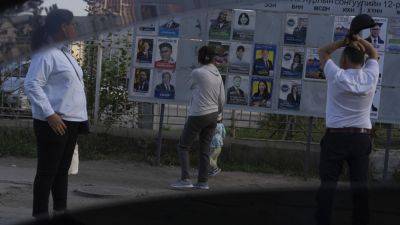Heavy snows and drought of deadly ‘dzud’ kill more than 7 million head of livestock in Mongolia
HANOI, Vietnam (AP) — An extreme weather phenomenon known as the dzud has killed more than 7.1 million animals in Mongolia this year, more than a tenth of the country’s entire livestock holdings, endangering herders’ livelihoods and way of life.
Dzuds are a combination of perennial droughts and severe, snowy winters and they are becoming harsher and more frequent because of climate change. They are most associated with Mongolia but also occur in other parts of Central Asia.
Many deaths, especially among malnourished female animals and their young, occur during the spring, which is the birthing season.
Herding is central to Mongolia’s economy and culture — contributing to 80% of its agricultural production and 11% of GDP.
In Mongolian, the word dzud means disaster. Dzuds occur when extremely heavy snows cause impenetrable layers of snow and ice to cover Mongolia’s vast grasslands, so the animals cannot graze and they starve to death. Drought at other times of the year means there’s not enough forage for the animals to fatten up for the winter.
Dzuds used to occur once in a decade or so but are becoming harsher and more frequent because of climate change. This year’s dzud is the sixth in the past decade and the worst yet. It followed a dzud last year and a dry summer. Snowfall was the heaviest since 1975.
The toll on Mongolia’s herds has soared, with 2.1 million head of cattle, sheep and goats dead in February, rising to 7.1 million in May, according to state media.
Thousands of families have lost over 70% of their entire herds. And the total death toll may increase to 14.9 million animals, or nearly 24% of Mongolia’s total herd, said Deputy Prime Minister S. Amarsaikhan, according to state media.
Nomadic herding is so







